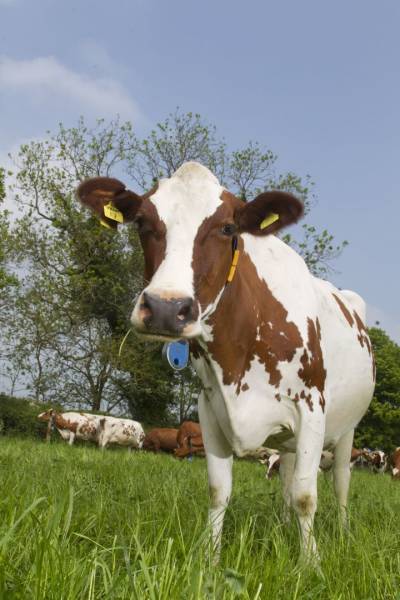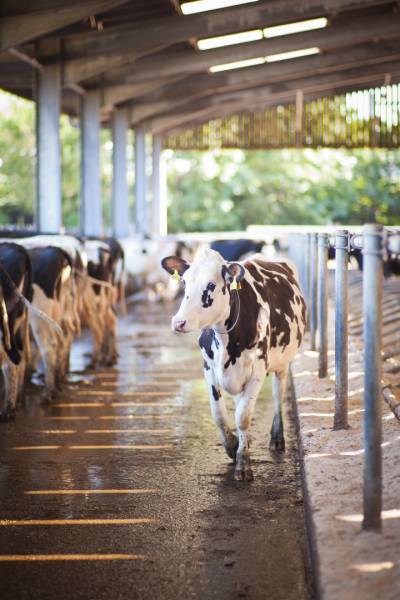

Dairy farmers, vets and industry professionals right across the whole supply chain have collaborated through Ruminant Health & Welfare (RH&W) to create the new UK Dairy Cattle Welfare Strategy for 2023-2028.
The strategy, which has now been launched is designed to help the industry show progress in animal welfare by 2028.
RH&W vice-chairman, Gwyn Jones, says the strategy is an update of a previous strategy aimed at improving the welfare of the national dairy herd, but importantly, has support right across our four nations.
“The industry’s shared vision is for the UK dairy industry to demonstrate evidence-based progress in six key areas of cattle welfare by 2028,” adds Mr Jones.
“Ability to provide evidence of progress will assist in maintaining UK status as a global leader in dairy cattle welfare; helping us compete with our international players.”
The six strategic goals in the strategy are:
- Thriving cows – ensuring all dairy animals are bred, reared and cared for to thrive in all systems
- Healthy feet – ensuring a proactive lameness management plan is in place on every UK dairy farm
- Comfortable cows – maximising cow comfort in housing and at pasture
- Appropriately nourished cows – ensuring a healthy body condition throughout the year
- Healthy udders – continued improvements to udder health to reduce cases of mastitis
- Positive welfare – moving towards ‘positive welfare’ by providing an environment that allows animals to exhibit normal behaviours such as curiosity or play
Mr Jones says RH&W will support the industry to make progress in these six key areas as research has shown the public expects the delivery of good welfare as well as good health, and we must continue to set the bar high for our industry standards.
“The UK must ensure standards deliver excellent welfare, providing a solid platform for UK supply chains to build on in the future,” adds Mr Jones.
“To enable the UK dairy industry to compete internationally, the sector will need to be able to provide evidence of progress on welfare. By doing so across the four nations, the UK will be positively differentiated from other countries.”
RH&W steering group member and senior animal health and welfare scientist at AHDB, Dr Jenny Gibbons, says AHDB has committed to helping the industry publish an annual progress report. The report will capture data evidencing the outcomes achieved by the strategy’s stakeholders, showing the actions taken annually to achieve the six welfare goals.
Dr Gibbons says: “These actions will be reported by groups of key industry stakeholders working together to gather evidence of industry achievements and progress on the six goals.”
In developing the strategy, the key stakeholder groups have been identified and split into the following categories: farm assurance; farmers; government; processing supply chains, including markets and hauliers; retail supply chains; research organisations; commercial organisations and veterinary surgeons.
Mr Jones and Dr Gibbons say that now the strategy has been launched, we must work together across the wider UK dairy supply chain to deliver the strategy.
Mr Jones says: “The wider industry from government officials and assurance scheme providers to dairy farmers and processors, must wherever possible work together to support progress on the strategy and support data collection to demonstrate industry progress.”
The dairy welfare strategy is part of a wider body of work at RH&W to facilitate and create welfare strategies for the whole UK ruminant sector – sheep and beef cattle ones will follow in due course.
For more information visit www.ruminanthw.org.uk